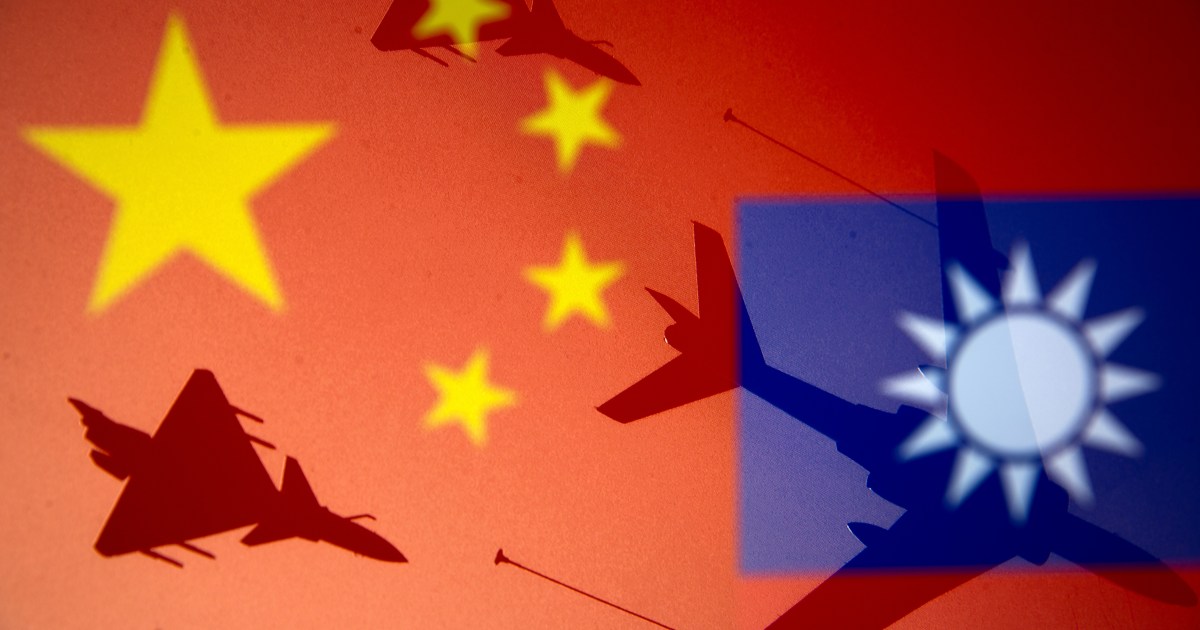The French magazine L'OBS said that Taiwan, a small country close to China, is the region most vulnerable to armed conflict in the world, where the "communist giant" dreams, despite repeated US warnings, to crush this annoying democratic enclave on the outskirts of his country.
And the magazine confirmed - in a report by its editor in charge of Chinese affairs, Ursula Gutieri - that about 23 million Taiwanese have been living for about 70 years - despite all the challenges and dangers - only 180 kilometers from the Chinese coast, after the forces of the Chinese nationalist leader Chiang Kai-shek retreated in 1949 In front of the advance of the forces of the Communist Party leader and leader of the Chinese Revolution, Mao Zedong, they were holed up inside this volcanic island.
This "second China" for Mao was a symbol of a permanent insult to the communist authority, turning the Taiwan Strait separating the two countries for decades into a theater of continuous clashes, until the world was on the brink of nuclear war in 1958 after a crisis caused by Mao, who ordered the army forces to bomb islands small in Taiwan.
nuclear bombs
A recently revealed report showed that US generals were afraid that China would target the Taiwanese capital, Taipei, and directed the dropping of nuclear bombs on the Chinese mainland, but then US President Dwight Eisenhower did not take their advice, and the crisis ended with a routine ceasefire between the two parties.
Then - adds Lopes - Taiwan experienced amazing economic growth, making it one of the "Four Asian Dragons", along with Hong Kong, Singapore and South Korea, while the People's China was drowning every day in the misery of the Maoists, and the liberation of the Taiwan political system led to its transformation in 2000 into real democracy.
All these developments, which took the two countries in more different directions, caused more recurring tensions, but without things developing into an all-out war between them, especially since China, which is committed to "peaceful reunification", bet on economic and cultural relations to calm conflicts over time and bring them closer. The two banks.
But in 2016, Chinese leader Xi Jinping again put the option of reunification using military force on the table, after Taiwanese democracy Tsai Ing-wen won the presidential election, and was re-elected in 2020.
Although Tsai, who comes from a party that supports complete independence from China, has taken a moderate stance on the issue, Xi Jinping (China's strongman) sees the mere existence of an independent democratic entity in the Chinese cultural sphere as an intolerable challenge.
forced consolidation
The French magazine asserts that the administration of US President Joe Biden recently came to the conclusion that Beijing is "induced by the idea of forced unification," with Kurt Campbell, an Asian specialist in the White House, telling the Financial Times that "China is acting excessively aggressive everywhere: In the South China Sea, in Australia on trade issues, in Europe, in India on border tensions, but no file is more hard-line than its military or diplomatic activities against Taiwan."
This hardening of Chinese behavior, as Lopes adds, has been evident during the recent period;
In September 2019, when massive protests rocked Hong Kong, one of the regime's accounts tweeted that "Once the Hong Kong issue is settled we will settle our accounts with Taiwan...Military reunification is inevitable."
And after Hong Kong was "to its knees" - as the magazine concludes - the "one country, two systems" formula lost all meaning, a formula that allowed the former British colony to retain some autonomy. Beijing has long waved this formula in its dealings with the Taiwanese as a promise of harmonious coexistence, but after running out of any additional proposals presented to the island's residents, Chinese leaders have no choice but to coerce and force, according to the French magazine.

